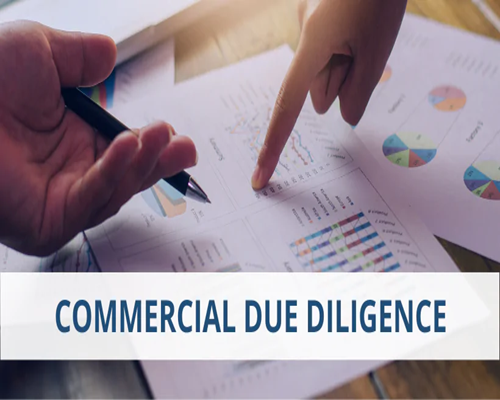Due Diligence
Understanding Due Diligence : A Quick Guide
Due diligence is a crucial process in business and legal contexts, ensuring thorough investigation and assessment before entering agreements or making decisions. In business, it involves examining financial records, operations, market position, and legal standing to mitigate risks and ensure informed choices. Legally, it pertains to verifying facts, reviewing contracts, and assessing compliance to uphold ethical standards and legal requirements. Due Diligence involves optimizing online content to enhance visibility and ranking on search engines. This includes using relevant keywords, creating quality content, improving website structure, and ensuring mobile-friendliness. By integrating SEO practices into due diligence, businesses can not only enhance their online presence but also attract and retain more customers through improved search engine visibility and user experience. This holistic approach ensures that both business operations and online strategies are strategically aligned, contributing to long-term success and growth in today's competitive digital landscape.
There are many possible examples of due diligence. Some common examples include investigating the finances of a company before making an investment, researching a person's background before hiring them, or reviewing environmental impact reports before committing to a construction project.


Financial Due Diligence
Financial Due Diligence: Ensuring Sound Investments
Financial due diligence is a critical process in investment evaluations, ensuring thorough assessment of a company's financial health and risks before a transaction. It involves scrutinizing financial statements, cash flows, liabilities, and other key financial metrics to verify accuracy and uncover potential issues. This process helps investors or buyers make informed decisions by identifying financial strengths, weaknesses, and areas needing attention. Key objectives include assessing the company's financial performance, evaluating the sustainability of earnings, understanding financial obligations and risks, and validating the accuracy of financial disclosures. Conducting comprehensive financial due diligence mitigates investment risks, enhances transparency, and supports negotiations for favorable terms. It is essential for safeguarding investments and achieving long-term financial goals.
Legal Due Diligence
Legal Due Diligence: A Brief Overview
Legal due diligence is the process of collecting and assessing all of the legal documents and information relating to the target company. Legal due diligence is a comprehensive investigation process undertaken to assess the legal risks and obligations of a business or individual, typically during mergers, acquisitions, or significant transactions. It gives both the buyer and seller the chance to scrutinize any legal risks, such as lawsuits or intellectual property details, before closing the deal.
This process involves a meticulous review of contracts, corporate documents, regulatory compliance, litigation history, intellectual property rights, employment agreements, and environmental regulations. The goal is to identify potential legal liabilities, ensure all legal aspects are in order, and confirm that the transaction complies with relevant laws and regulations. By conducting thorough legal due diligence, parties can make informed decisions, negotiate better terms, and mitigate risks, ultimately ensuring a smoother transaction and safeguarding their interests.


Operational Due Diligence
Comprehensive Guide to Operational Due Diligence
Operational Due Diligence (ODD) is a critical process in evaluating the efficiency and risks associated with a company's operations. Operational due diligence is the investigative analysis conducted by a buyer of the operations of a target business. This assessment goes beyond financial analysis to scrutinize operational aspects such as management quality, internal controls, IT systems, and compliance with regulations. By thoroughly examining these elements, investors and stakeholders can identify potential operational risks and inefficiencies that may impact the company's performance. ODD includes on-site visits, interviews with key personnel, and a review of operational processes and documentation. The goal is to ensure that the company operates effectively and is well-prepared to achieve its strategic objectives. Proper ODD can prevent costly mistakes, enhance investment decisions, and provide a comprehensive understanding of a company's operational health, ultimately contributing to its long-term success.
Commercial Due Diligence
Commercial Due Diligence: A Brief Overview
Commercial due diligence is a critical process in mergers and acquisitions (M&A) where potential buyers assess the viability and strategic fit of a target company. This involves analyzing the target's market position, competitive landscape, customer base, and overall financial health. The goal is to identify opportunities, risks, and synergies that could impact the investment decision. Key components include market analysis, competitive benchmarking, customer feedback, and an assessment of growth potential. Effective commercial due diligence helps buyers make informed decisions, negotiate better terms, and ultimately ensures that the acquisition aligns with their strategic objectives. It is an essential step to mitigate risks and maximize the value derived from the transaction. Commercial due diligence commonly entails a comprehensive assessment of diverse commercial documents, including sales and promotional materials, customer agreements, pricing structures, and competitive assessments.

Quick Links
© Jaikvik Business India Private Limited. All Rights Reserved.
